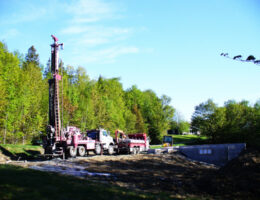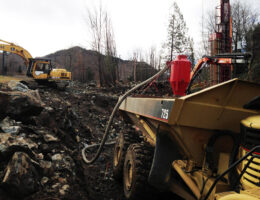What is artesian well sealing?
Even though artesian wells are more protected from contaminants than surface wells, the Ministry of Sustainable Development, the Environment and the Fight Against Climate Change impose very specific construction criteria. A sealed well, also called a bentonite collar, is a clay-based enclosure which is installed around the circumference of the steel casing and makes the well more impervious to infiltration, protecting it from contaminants and bacteria.
Why seal a well?
There are four main reasons why you should seal your well:
- Your well is less than 30 meters from your leeching field, due to lack of space on your land
- Rock is found less than five meters from the ground’s surface
- Your well is in a 0-20 year floodplain
- Due to changes in regulations, your well has become non-conforming with respect to required distances between the leeching field and the septic tank.
What does well sealing consist of?
This procedure consists of drilling a hole four inches greater than the initial diameter in the first five meters of the artesian well, in order to fill the empty space between the two walls with material called cement bentonite (or bentonite), which makes this space as watertight as possible. Note that it is generally possible to do a sealing of an already existing artesian well.
Who can do well sealing?
It is up to you to choose a professional and conscientious drilling contractor with the necessary expertise. The sealing of your well is a delicate procedure and a very important step in the drilling of an artesian well. This must done according to established norms in order to avoid problems in the future.
Our team can do the sealing of your artesian well. Do not hesitate to contact us if necessary.




